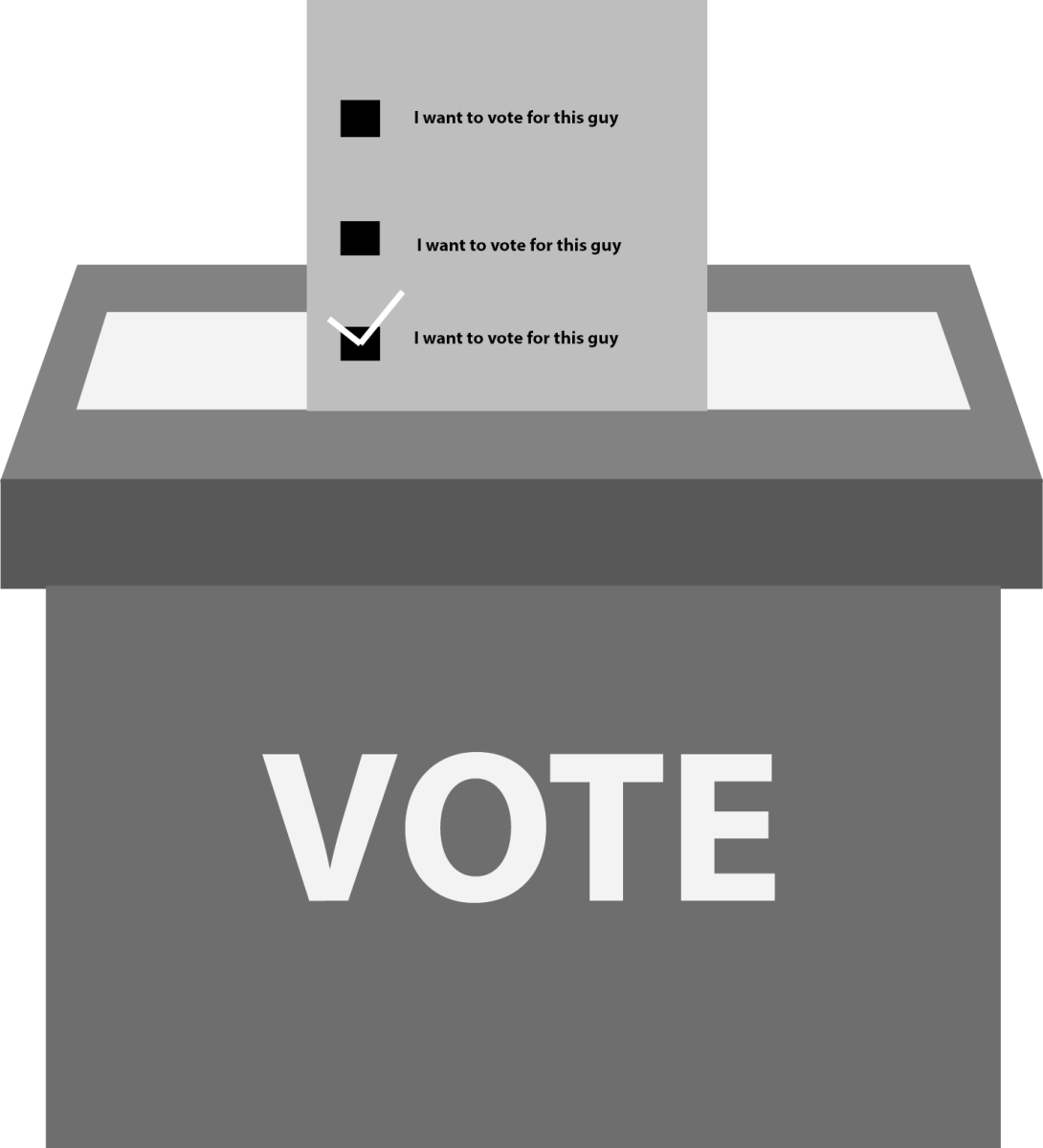With the presidential election fast approaching and early voting already under way, it is essential for registered voters to get informed.
For college students in particular, the process of getting politically informed and engaged can be daunting, especially given their busy schedules and the fact that most college students are first-time voters. Yet, college students are not only a key constituency for the presidential candidates to captivate, but also among those who have the most to lose—or gain—in the upcoming election.
That being the case, through a comparison of their proposed platforms and enacted policies—during their terms as president, vice president and senator respectively—we at the Rambler hope inform you on where the two presidential candidates stand on the issues specifically affecting college students.
The Key Issues
Issue #1: Minority Serving Institutions
Following the federal repeal of affirmative action and the restriction of ‘diversity, equity & inclusion’ programs in several states, higher education diversity initiatives across the country have come under contention. As a result, funding of minority serving institutions stands as a hot-button issue this election. Historically Black Colleges & Universities (HBCU), Tribal Colleges & Universities, Asian American & Pacific Islander Serving Institutions, and Hispanic Serving Institutions (HSI)—such as Texas Wesleyan—will look to Nov. 5 with trepidation.
Harris: Throughout her political career, Vice President Kamala Harris has emphasized the importance of minority serving institutions and continuously pledged to keep them funded. A graduate of an HBCU herself, Harris promised to invest $60 billion in HBCUs as early as 2019 in her first attempt at the democratic nominee for president. Further, as a part of the Biden Administration, Harris oversaw a record $16 billion investment in HBCUs. Similarly, the Biden-Harris administration supported HSIs through over $15 billion across several programs and initiatives.
With a track record that reflects staunch commitment to supporting minority serving institutions, college students can expect more of the same from a potential Harris presidency.
Trump: Former President Donald Trump made similar efforts at increasing funding to minority-serving institutions during his presidency—though to a comparatively lesser extent. Through programs such as the Future Act, Trump ensured $255 million in annual funding to minority-serving institutions—more specifically $85 million a year for HBCUs, $100 million for HSIs and $30 million for tribal schools and $40 million for other minority-serving institution.
Though Trump’s past investment in minority-serving institutions is undoubted, his policy on other financial aid programs had conflicting effects. During his presidency, Trump proposed budget cuts to the Federal Work Study program, the Pell Grant program and the Federal Supplemental Educational Opportunity Grant programs, all of which minority students and students at minority-serving institutions use at higher rates.
In addition, Trump’s proposed plans for the Department of Education, which is responsible for providing and allocating the aforementioned funding, leaves his support for minority-serving institutions and higher education as a whole under question.
Issue #2: Department of Education
Responsible for administering education policy and funding for K-12 and higher education, the Department of Education has come under intense scrutiny in recent years. The two presidential candidates have proposed wildly contrasting plans for the department which has actuated American education since 1980.
Harris: In response to Republican plans to close the Department of Education, Harris has been defiant in her support of the federal agency. Stating in her DNC speech, “We are not going to let [Trump] eliminate the Department of Education,” Harris’ stance has been made clear and her actions reflect such.
During her vice-presidency, Harris worked alongside President Biden to increase funding to the Department of Education and stave off budget cuts proposed by House Republicans. Most notably these funds went towards student loan forgiveness, financial aid and minority-serving institutions.
Trump: Trump made consistent efforts to cut funding to the Department of Education throughout his presidency. In anticipation of his potential re-election, Trump has promised to abolish the department outright.
Trump has accused the department of pushing ‘radicalism’ and blamed it for the supposed failure of American education; the former president instead plans to delegate the duties of the federal department to state governments. While it is unclear what a reality without the Department of Education would look like, it is certain that the change would considerably alter the course of American education for years to come.
Issue #3: Title IX
Enforced by the Department of Education, Title IX is a federal law that prohibits sex-based discrimination in federally funded education institutions. The legislation has transformed the experiences of college students across America for decades. Passed in1972, the provisions of the law have continuously evolved with each president imparting their own interpretation. Recent developments to Title IX have stirred controversy and once again pitted the two presidential candidates against each other on a key issue.
Harris: Under the Biden-Harris administration, protections of Title IX have been expanded to include pregnancy, sexual orientation and gender identity. In addition, amendments have been made to how sexual assault and harassment cases are defined and adjudicated.
Most notably, the changes protect LGBTQ+ students and employees from discrimination, require schools to provide breastfeeding rooms for students and employees and protect students and employees with medical conditions related to termination of pregnancy.
These developments, which partially came in response to Trump-era rulings, have been met with legal opposition from Republicans and staunch criticism from Trump.
Trump: Trump made revisions of his own to Title IX during his presidency. Importantly, the revisions confined the definition of sexual assault or harassment to actions that are ‘severe, pervasive, and objectively offensive’ while also restricting the protections of the Title IX only to incidents happening on campus or in a university-sanctioned student organization house.
Trump, who undid amendments made to Title IX by Former President Barack Obama, would undoubtedly work to reverse the changes made during Harris’ vice-presidency upon his possible re-election. During an appearance on talk show ‘Kayal and Company’ the former president pledged to do away with the new restrictions on ‘day one’ of his presidency.
Early voting ends this Friday, Nov. 1. Election day falls on Nov. 5. To check your registration status or your polling site, visit the following website.









![Pippin, played by Hunter Heart, leads a musical number in the second act of the musical. [Photo courtesy Kris Ikejiri]](https://therambler.org/wp-content/uploads/2025/04/Pippin-Review-1200x800.jpg)
![Harriet and Warren, played by Trinity Chenault and Trent Cole, embrace in a hug [Photo courtesy Lauren Hunt]](https://therambler.org/wp-content/uploads/2025/02/lettersfromthelibrary_01-1200x800.jpg)
![Samantha Barragan celebrates following victory in a bout. [Photo courtesy Tu Pha]](https://therambler.org/wp-content/uploads/2025/05/20250504_164435000_iOS-834x1200.jpg)





![Hunter Heart (center), the play's lead, rehearses a scene alongside other student actors. [Photo courtesy Jacob Sanchez]](https://therambler.org/wp-content/uploads/2025/04/thumbnail_IMG_8412-1200x816.jpg)
![Student actors rehearse for Pippin, Theatre Wesleyan's upcoming musical. [Photo courtesy Jacob Rivera-Sanchez]](https://therambler.org/wp-content/uploads/2025/04/Pippin-Preview-1200x739.jpg)
![[Photo courtesy Brooklyn Rowe]](https://therambler.org/wp-content/uploads/2025/05/CMYK_Shaiza_4227-1080x1200.jpg)

![Lady Rams softball wraps up weekend against Nelson Lions with a victory [6 – 1]](https://therambler.org/wp-content/uploads/2025/04/Screenshot-2025-04-04-100924-1200x647.png)

















